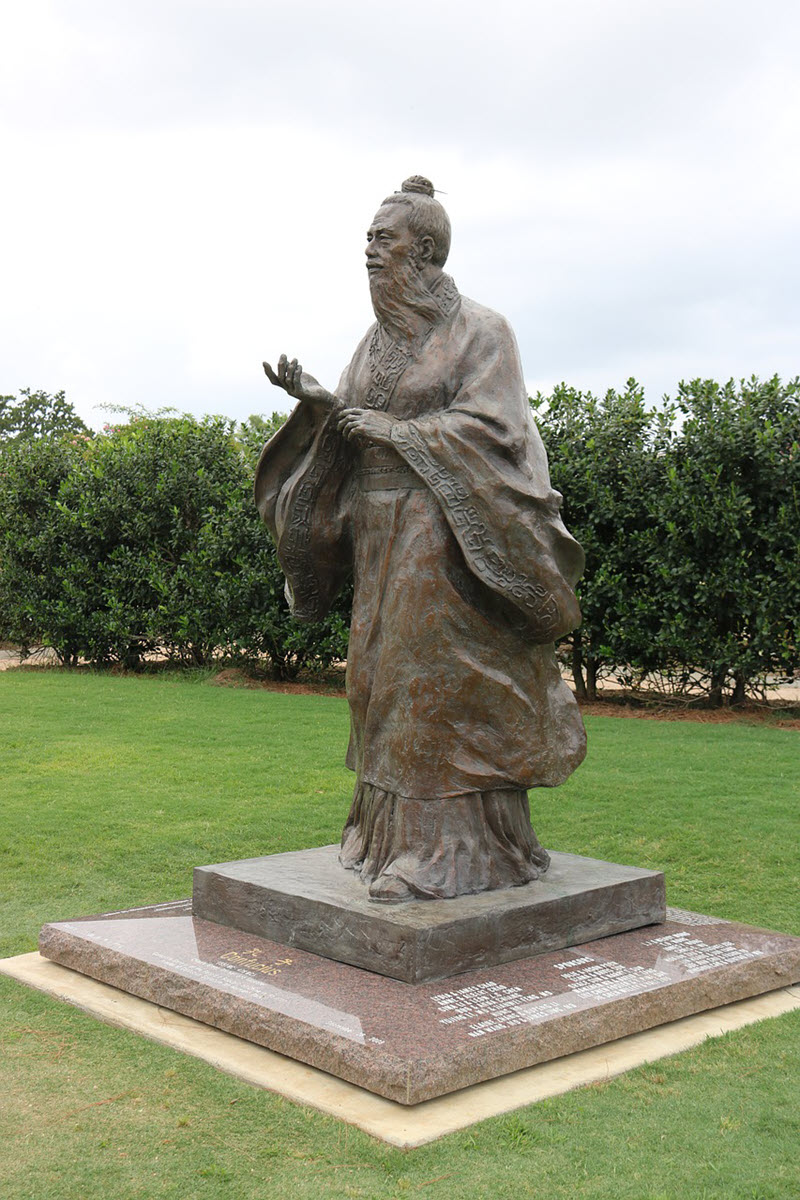

According to Confucius, benign taxation and fair distribution of wealth were essential to a good government and an obedient population. UInfairness led to unrest.
However the government need not ensure equality or distribution of wealth as much as avoid unfairness. The following quote is illustrative:
According to Tung Chung-Shu "It is said by Confucius, 'We are not troubled with fears of poverty, but are troubled with fears of a lack of equality of wealth.' Therefore, when there is here a concentration of wealth, there must be an emptiness there. Great riches make the people proud; and great poverty makes them wretched. When they are wretched, they would become robbers; when they are proud, they would become oppressors; it is human nature. From the nature of the average man, the sages discovered the origin of disorder. Therefore, when they established social laws and divided up the social orders, they made the rich able to show their distinction without being proud, and the poor able to make their living without misery; this was the standard for the equalization of society. In this way, wealth was sufficient, and the high and low classes were peaceful." (Many Dewdrops of the Spring and Autumn, bk. xxvii.)
And so, in the Analects Confucius is quoted thus: "When a country is well governed, poverty and a mean condition are things to be ashamed of. When a country is ill governed, riches and honours are things to be ashamed of." (Analects, bk. viii., c. xiii., v. 3.)
It is when there is an uneven distribution of wealth and resurces, that things fall apart. In an earie echo of today's situation Confucius recounted the story of a kingdom which had failed to achieve equitable distribution of wealth: "The number of farmers decreased, and that of merchants increased. Grain was insufficient, but luxurious goods were plenty. … The physical desires were uncontrolled, and extravagant consumption and social usurpation had no end. Therefore, the merchant transported goods which were difficult to obtain; the artisans produced articles which had no practical use; and the student practised ways which were contrary to orthodoxy; all of them pursued the temporary fashion for the getting of money. The hypocritical people turned away from truth in order to make fame, and guilty men
ran risks in order to secure profit. "History of Han" (chap. xci.) Sounds familiar, doesn't it?
Taxes and pubishments were to be light, to encourage economic growth and the goodwill of the people. "If Your Majesty will give a benevolent government to your people, be sparing in punishments and fines and make the taxes and levies light, so causing fields to be ploughed deep and weeding to be carefully attended to and the strong-bodied, during their days of leisure, to cultivate filial piety, fraternal respectfulness, sincerity, truthfulness, serving thereby, at home, their fathers and elder brothers and, abroad, their elders and superiors you will then have a people who can be employed with sticks they have prepared, to oppose the strong mail and sharp weapons of the troops of Ts'in and Ts'oo.'" (Bk. i., pt. i., c. v., v. 2, 3.)
A prosperous people is a well governed people. A poor people can only think of its poverty. "In such circumstances they only try to save themselves from death and are afraid they will not succeed. What opportunity have such to cultivate propriety and righteousness?" (Bk. i., pt. i., c. vii., v. 22.)
We can see from these quotes from the teachings of Confucius, that the sage had many progressive ideas that are not out of place even now, over two thousand years later. Sadly, just as in Confucius's time, it is difficult to find any ruler willing to put these principles truly into practice.